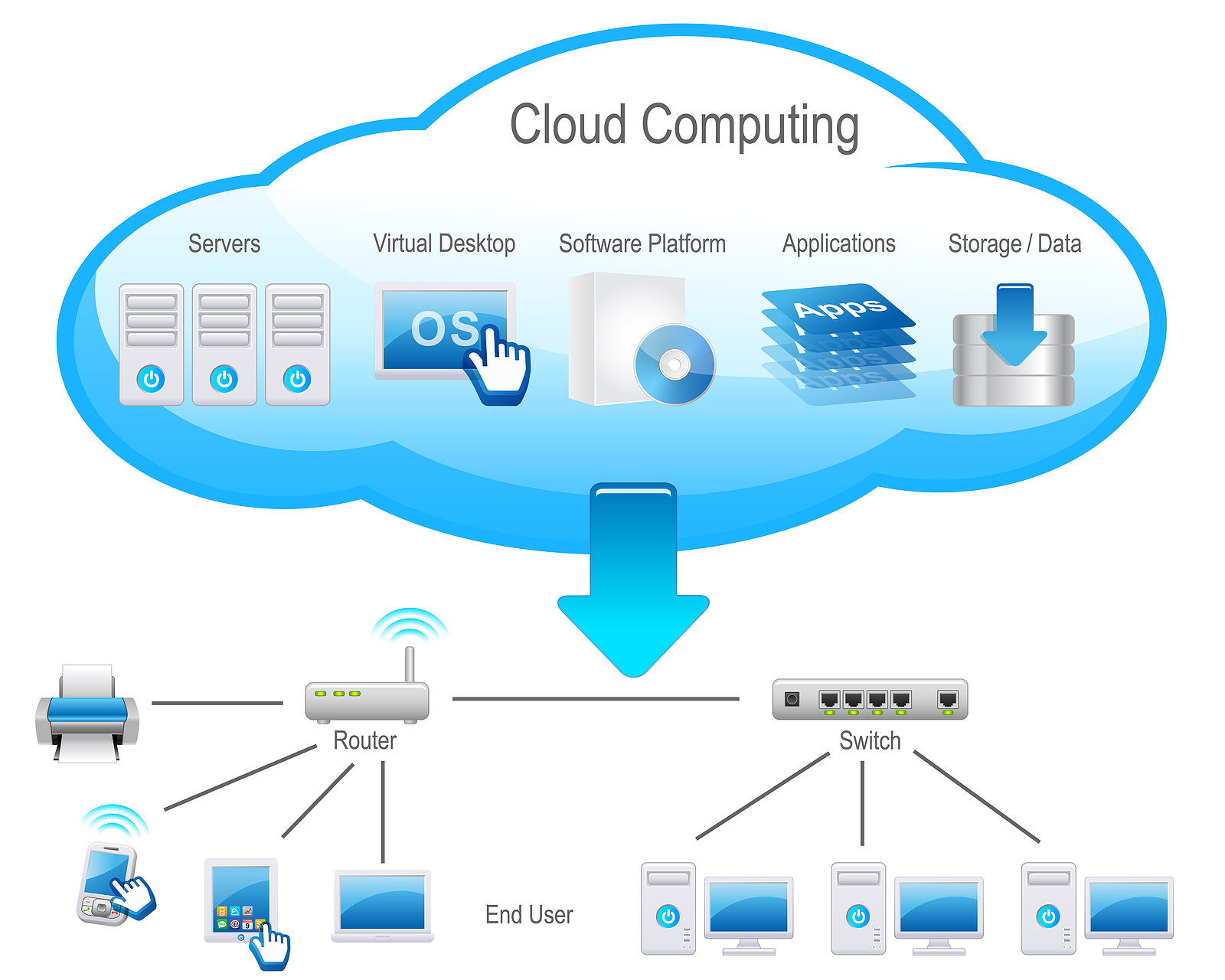Cloud Computing Challenges and Opportunities Drive Business Strategy in 2024


Cloud computing has become a business imperative, leveling the playing field for companies of all sizes. The cloud offers critical benefits, from driving innovation to providing real-time access to data. But it also introduces risk. Proactive businesses carefully evaluate cloud computing challenges and opportunities, tailoring their approach to align with business needs.
Security and Compliance
Data security and regulatory compliance remain significant concerns for organizations considering cloud migration. Hackers increasingly target the cloud and, while cloud security solutions continue to evolve, businesses remain wary.
Multi-cloud environments add complexity, and cloud services generally entail passing data to a third-party service provider. At the same time, privacy regulations, particularly in highly regulated industries, impose strict controls. Organizations must update their security and compliance strategies accordingly, as traditional approaches will no longer prove effective.
In 2024, businesses need to find a balance between leveraging the immense capabilities of the cloud and implementing robust security. Security measures such as zero trust architecture, centralized identity and access management, and improved encryption will prove critical.
Security teams will also need to evaluate and update their security policies and ensure continuous threat monitoring. AI-enhanced security measures can be useful in detecting and responding to threats more quickly and efficiently.


Multi-Cloud and Hybrid Cloud Strategies Bring Both Benefits and Risks
The majority of mid- to large-sized businesses have adopted a multi-cloud or hybrid cloud strategy, and this trend is likely to continue in 2024. That is, they use cloud services from multiple cloud providers, both public and private. Hybrid clouds also use on-premises data centers or edge locations for computing and storage.
Multi-cloud and hybrid cloud solutions provide several key benefits, including cost reductions, reduced risk, and increased flexibility. However, they also add complexity to information governance, as data resides in multiple locations, with multiple service providers. This situation can lead to data silos and compliance issues.
To address these complexities, organizations must address integration issues and modify data governance policies to include multiple clouds. Network segmentation, firewalls, monitoring, and cloud encryption will help strengthen security. And incident response plans will need to account for the various environments and providers involved.
Empowering Innovation
Cloud computing opens the door for transformative technologies and exciting innovations by making emerging technologies accessible at scale. For instance, with the cloud, businesses can access AI, machine learning, and big data analytics without having to make substantial infrastructure investments. This allows even small businesses to gain a competitive edge.
For example, as AI plays an increasingly important role in many industries, the cloud proves indispensable. AI models require access to huge amounts of data and vast computing power. This access would prove unattainable to most businesses without the cloud. However, with AI-as-a-service, organizations of all sizes can access AI capabilities through a subscription.
Ability to Leverage Real-time Data
Along with innovation, an important cloud-computing trend for 2024 involves increased business agility. Applications like Microsoft Teams, for instance, enable real-time collaboration, regardless of distance.
Similarly, the cloud delivers up-to-the-minute information. This allows businesses to react quickly to changes in the market. It also enables manufacturers to monitor any changes in complex factory equipment in real time, streamlining maintenance and reducing downtime.
Technologies like 5G networks work hand-in-hand with cloud computing by reducing latency and enabling faster data transfer.
Strategic Approach to Cloud Computing Challenges and Opportunities Powers Business Goals
2024 will bring exciting developments in cloud computing. By democratizing emerging technologies like AI and offering greater connectivity than ever before, the cloud opens the door for unprecedented innovation and flexibility.
At the same time, the cloud radically changes the data environment. Businesses need to carefully balance opportunities against increased complexity and evolving security threats. They will need to implement security and information governance best practices and choose their providers and partners carefully.
eMazzanti Technologies offers a full range of cloud services, customized to business needs and budget. Whether optimizing operations with Azure Cloud Services, or protecting critical assets with state-of-the-art cloud security, the cloud computing experts at eMazzanti stand ready to help.
Recent Posts
IT Consulting Services: Strategic IT Leadership for Business Growth
Discover how IT Consulting Services from eMazzanti Technologies provide the strategic leadership needed for smart…
Engage Your Workflows with Microsoft Viva
Discover how Microsoft Viva can transform your workplace into a hub of engagement, productivity, and…
Collaboration Made Simple with Microsoft SharePoint
Discover how Microsoft SharePoint optimizes document workflow, enhancing team collaboration and productivity.
Defender Secures Endpoints
Discover how Microsoft Defender for Endpoint provides comprehensive security for businesses, offering real-time threat detection…
The Power of Feedback for Business Growth
Discover how customer feedback drives business growth, enhances customer loyalty, and keeps your company competitive.
Compliance Made Easy with Microsoft 365 and eMazzanti Technologies
Discover how Microsoft 365's robust security features, combined with eMazzanti Technologies' expertise, simplify compliance for…


